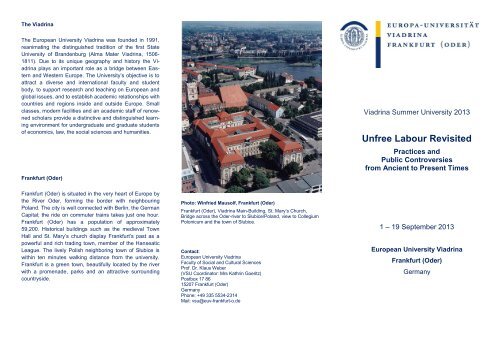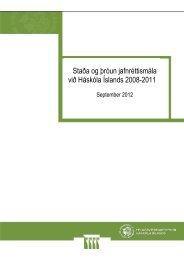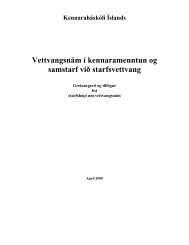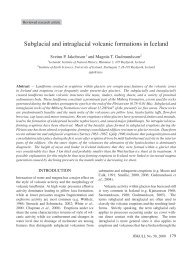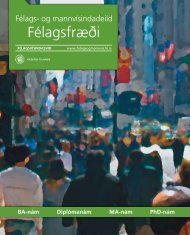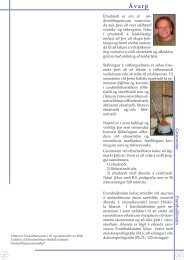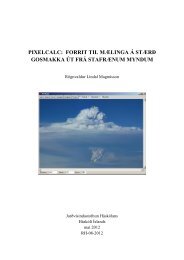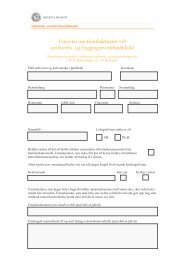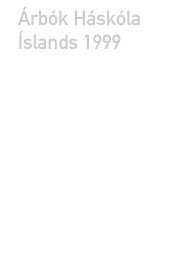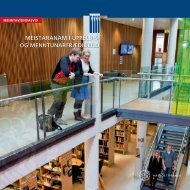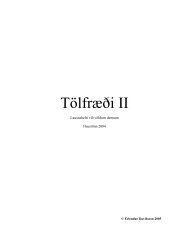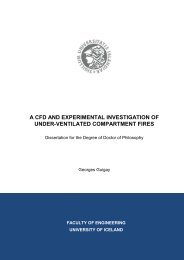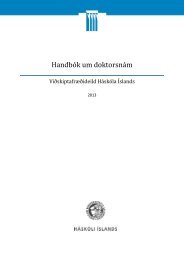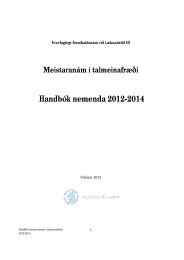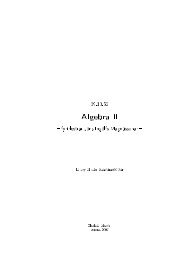Unfree Labour Revisited
Unfree Labour Revisited
Unfree Labour Revisited
Create successful ePaper yourself
Turn your PDF publications into a flip-book with our unique Google optimized e-Paper software.
The Viadrina<br />
The European University Viadrina was founded in 1991,<br />
reanimating the distinguished tradition of the first State<br />
University of Brandenburg (Alma Mater Viadrina, 1506-<br />
1811). Due to its unique geography and history the Viadrina<br />
plays an important role as a bridge between Eastern<br />
and Western Europe. The University’s objective is to<br />
attract a diverse and international faculty and student<br />
body, to support research and teaching on European and<br />
global issues, and to establish academic relationships with<br />
countries and regions inside and outside Europe. Small<br />
classes, modern facilities and an academic staff of renowned<br />
scholars provide a distinctive and distinguished learning<br />
environment for undergraduate and graduate students<br />
of economics, law, the social sciences and humanities.<br />
Frankfurt (Oder)<br />
Viadrina Summer University 2013<br />
<strong>Unfree</strong> <strong>Labour</strong> <strong>Revisited</strong><br />
Practices and<br />
Public Controversies<br />
from Ancient to Present Times<br />
Frankfurt (Oder) is situated in the very heart of Europe by<br />
the River Oder, forming the border with neighbouring<br />
Poland. The city is well connected with Berlin, the German<br />
Capital; the ride on commuter trains takes just one hour.<br />
Frankfurt (Oder) has a population of approximately<br />
59,200. Historical buildings such as the medieval Town<br />
Hall and St. Mary’s church display Frankfurt’s past as a<br />
powerful and rich trading town, member of the Hanseatic<br />
League. The lively Polish neighboring town of Słubice is<br />
within ten minutes walking distance from the university.<br />
Frankfurt is a green town, beautifully located by the river<br />
with a promenade, parks and an attractive surrounding<br />
countryside.<br />
Photo: Winfried Mausolf, Frankfurt (Oder)<br />
Frankfurt (Oder), Viadrina Main-Building, St. Mary’s Church,<br />
Bridge across the Oder-river to Słubice/Poland, view to Collegium<br />
Polonicum and the town of Słubice.<br />
Contact:<br />
European University Viadrina<br />
Faculty of Social and Cultural Sciences<br />
Prof. Dr. Klaus Weber<br />
(VSU Coordinator: Mrs Kathrin Goeritz)<br />
Postbox 17 86<br />
15207 Frankfurt (Oder)<br />
Germany<br />
Phone: +49 335 5534-2314<br />
Mail: vsu@euv-frankfurt-o.de<br />
1 – 19 September 2013<br />
European University Viadrina<br />
Frankfurt (Oder)<br />
Germany
<strong>Unfree</strong> <strong>Labour</strong> <strong>Revisited</strong> - Practices and Public<br />
Controversies from Ancient to Present Times<br />
Globalization has a dark side – the return and expansion<br />
of unfree labour. Regions inside and outside Europe have<br />
drawn benefits from political and economic liberalisations<br />
of the past decades, but deregulation of labour markets<br />
and of financial operations have also widened social gaps<br />
and facilitated the expansion of shadow economies. The<br />
acceleration of capital flows has been accompanied by<br />
increased efforts of more affluent nations to keep labour<br />
migrants at bay. Irregular immigrants are prone to labour<br />
exploitation, while employment of unfree labour on a large<br />
scale is widespread in newly industrialising economies.<br />
These trends are reflected by the popularity of a notion<br />
like ‘modern slavery’, used by UN organizations, governments<br />
and civil society protagonists, and suggest a sense<br />
of historical continuity and current criticism. This course<br />
offers room to reconsider historical manifestations of unfree<br />
labour – slavery, serfdom, peonage, forced labour in<br />
totalitarian regimes – in different cultural contexts (European,<br />
African, American, Asian), and to scrutinize coeval<br />
concepts and meanings and their transfer into modern<br />
public talk. Participants will deal with the often very blurred<br />
lines separating free and unfree labour and reflect the<br />
discourses justifying or challenging these practises from<br />
perspectives of historical and social sciences, economics<br />
and law. The comparative and interdisciplinary approach<br />
of this course will allow us to put the cherished abstraction<br />
‘individual freedom’ in contrast with actual forms of labour,<br />
which are all ranging somewhere on the continuum between<br />
‘free’ and ‘unfree’.<br />
The issue is high on the agenda of scholars not only from<br />
the disciplines involved here. Recent publications have<br />
offered substantial overviews of the problem, yet always<br />
from the angle of a particular discipline, and mostly with a<br />
regional focus. This summer university shall provide an<br />
interdisciplinary forum for both younger and established<br />
researchers. It is also meant as an important element in<br />
the development of a related research focus at the Faculty<br />
of Social and Cultural Sciences.<br />
Core Course 1 - Prof. Dr. Klaus Weber:<br />
"Historical Practices and Discourse of <strong>Unfree</strong> <strong>Labour</strong>"<br />
Core Course 2 - Dr. Norbert Cyrus:<br />
"Current Practices and Discourse of <strong>Unfree</strong> <strong>Labour</strong>"<br />
Target audience<br />
This summer university is targeting at doctoral students and<br />
at advanced MA students from the fields of<br />
history (ancient and modern)<br />
social sciences (sociology, anthropology, ethnology ...),<br />
economics,<br />
political sciences,<br />
legal studies or law,<br />
and other relevant fields of cultural studies.<br />
It is aiming particularly at those young scholars already<br />
carrying out their own research related to the contents of<br />
the summer university. They shall be offered the opportunity<br />
to meet fellow researchers of their own cohort, and established<br />
university teachers and researchers from Europe<br />
and abroad. The objective is to establish contacts and<br />
networks which shall be helpful with their present and future<br />
projects.<br />
Number of participants<br />
There are 40 places for which we would like to have approximatly<br />
25 international participants and c. 15 from the<br />
European University Viadrina or other German Universities.<br />
Teaching and Syllabus<br />
During the Summer School a variety of teaching formats<br />
will be applied, in order to convey knowledge and encourage<br />
interaction, including course teaching with interactive<br />
elements, classical lectures by invited speakers, seminars,<br />
workshops, and field visits. The younger researchers will<br />
actively contribute to the program, offering their own papers<br />
in a ‘Research Forum’, and organising informal peer meetings.<br />
Details are available on the Viadrina Summer University’s<br />
website.<br />
Certificate and ECTS Credits<br />
The Viadrina Summer University Certificate requires active<br />
participation in both core courses, two seminars, one workshop,<br />
three lectures and one excursion.<br />
Students are entitled to gain up to 18 ECTS credits. This<br />
requires one seminar paper on a topic of the participant's<br />
choice (related to the program, 25 pages) = 9 ECTS, 2<br />
essays on chosen topics (related to the program) = 3 ECTS<br />
each, participation in the excursion to Sachsenhausen =<br />
3 ECTS.<br />
Course fees and fellowships<br />
Participants from abroad:<br />
The Viadrina Summer University (VSU) provides 25 fellowships<br />
for foreign participants. These fellowships cover tuition<br />
fee, accommodation and travel costs.<br />
Participants from German Universities:<br />
We regret that no fellowships can be granted to students<br />
from German universities.<br />
They will cover travel, accommodation and tuition fee from<br />
their own funds.<br />
(Tuition fee - €100 to be paid in advance - includes: course<br />
material, excursion and other costs related to the course<br />
program.)<br />
Accommodation<br />
Participants are invited to stay in modern student apartments<br />
with single rooms and modern facilities in Słubice,<br />
Poland. This small border town is situated right on the opposite<br />
bank of the River Oder. The price of a single room<br />
per person for 18 nights will be c. 130 Euro. Grocery stores,<br />
supermarkets and restaurants are all to be found within<br />
walking distance.<br />
Application<br />
Deadline for all applications is 30 th April 2013.<br />
Decisions of acceptance will be announced by 15th May<br />
2013 via e-mail. You can find the application form and<br />
information about all required documents at our website.<br />
.


